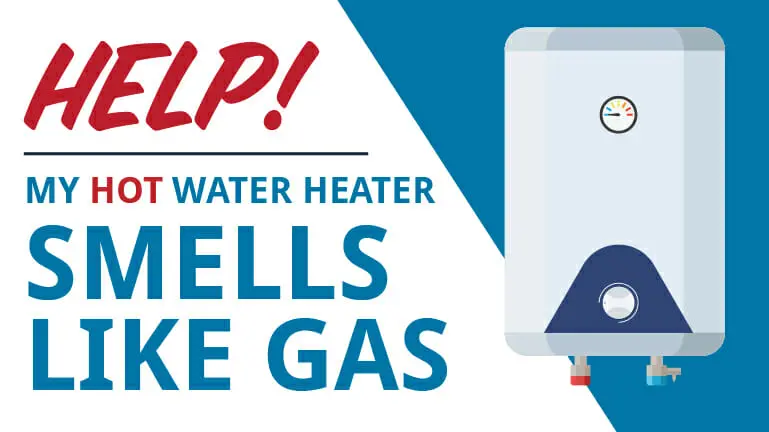
Help! My Hot Water Heater Smells Like Gas
In the first installment of our “Help” series, we’ll cover why your hot water heater could be smelling like gas.
It’s okay – don’t panic! First, you’re going to want to be sure of what you’re smelling. Then we can work to diagnose the source of your problem.
Is it normal for a hot water heater to smell like gas? The short answer is, “No.”
Here’s the long answer: Natural gas is odorless. The chemical mercaptan is added to natural gas to better detect when a leak is occurring. This chemical has a distinct smell and is highly noticeable when a leak does exist. If you smell sulfur or what some may describe as “rotten eggs,” this may be a sign of a gas leak, which indicates there may be a problem with your water heater or other HVAC equipment in your home.
Determine that what you are smelling is in fact, gas. Many smells can arise in a hot water heater, as these machines are commonly exposed to various chemicals and moisture, and they are placed in areas of your home that are susceptible to mold and other air pollutants.
The following smells may indicate an issue, though not all of these smells are related to gas leaks.
Rotten Egg Smell In Your Water
Some hot water heaters can produce odors in your water that smell like rotten eggs, caused by bacteria reacting to aluminum or magnesium anodes that attract corrosive elements in your water. If this is the case, you likely have an issue with hydrogen sulfide gas in your water and may need to replace the anode with another type that won’t produce this type of odor.
Burning Wire Smell
If your hot water heater smells like a wire is burning, or any other electrical-type of smell, this could signal issues with your wiring, most likely one due to arcing – a type of discharge that happens when two loose wires make intermittent contact. This will require an electrician, as wiring will likely need to be replaced. Be sure to turn off your breaker until a specialist can diagnose the issue.
What To Do When You Have A Gas Leak
Once you are fairly certain that you have a gas-related issue, you need to act fast.
If you have a natural gas heater, be sure that you take precautions. Before doing anything else, leave your home and contact your local heating experts or the fire department, so professionals can confirm the leak and its source for you. Contact a specialist as soon as possible, as gas leaks can quickly turn into a dangerous problem for your home and your safety. If you know how to turn off the gas lines that access your equipment, do so, however, do not take any actions if you are not confident you can complete them correctly.
Do not turn the gas back on until your heater has been properly diagnosed and/or repaired and the pilot light has been ignited again.
Remember to stay safe when working with heating equipment, especially those involving dangerous chemicals or parts. If you are uncomfortable handling a hot water heater, do not attempt to repair it yourself. Instead, call a professional who can properly diagnose your equipment and avoid further damage to your home.
One last tip: If you don’t already have a natural gas detector in your home, you can purchase one online or from most home services stores. A natural gas detector will help to make you aware of issues as soon as they become a problem. Though more expensive, combustible gas detectors can also be useful in identifying dangerous gas leaks.
